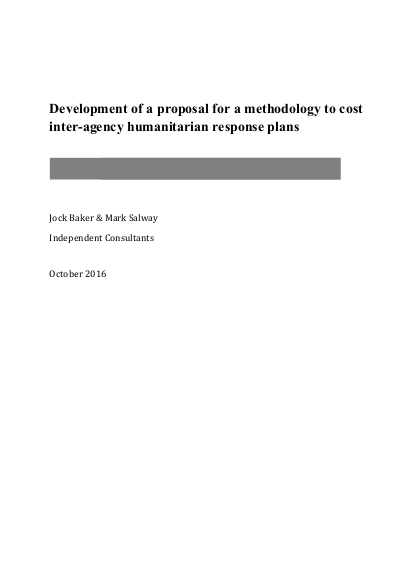
The Inter Agency Steering Committee (IASC) introduced the Humanitarian Programme Cycle (HPC) concept in 2013 as part of the Transformative Agenda to replace the consolidated appeal process (CAP) in protracted crises. The shift to HPC was intended to both streamline processes and at the same time shift the focus from fundraising to achieving results and improving accountability. The Humanitarian Response Plan (HRP) is a key component of the HPC with the purpose of providing an effective management tool for the Humanitarian Coordinator (HC) and the Humanitarian Country Team (HCT). The HRP should include an estimate of overall budgetary requirements based on needs that provides a basis for both tracking contributions and an assessment of how effectively and efficiently needs are being met.
It became evident during our consultations that many key informants lacked an in-depth understanding of costing terminology and approaches. The IASC Costing Group has faced similar challenges due to a lack of technical inputs (e.g. finance and economics) and perspectives from staff who have had hands- on experience of putting together response plans. This has contributed to a situation where debates around costing of HRPs have at times appeared to be more about agency mandates and resistance to revising systems and processes of individual agencies than identifying practical solutions to better meet the needs of affected populations.